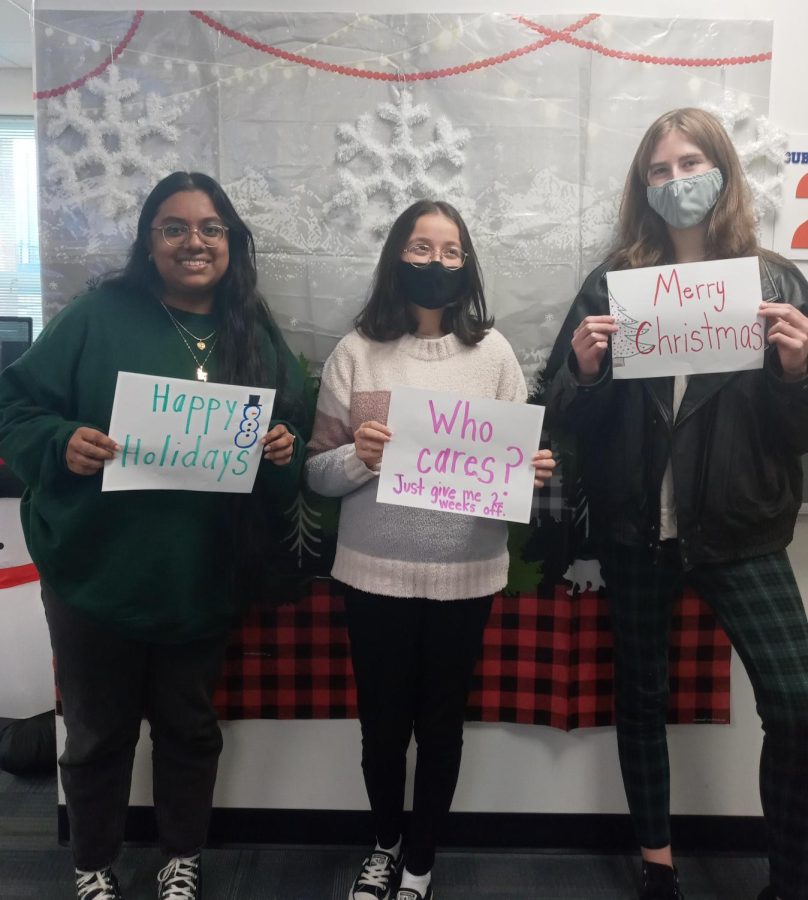Merry Christmas or Happy Holidays?
Photo courtesy of Madison Bell
Students are split over whether to say, “Happy Holidays” or “Merry Christmas,” is most appropriate to say during the winter season.
The holiday season is approaching, which brings with it the controversial discussion of whether people should say, “Happy holidays” or “Merry Christmas” to each other.
“I feel a little offended [when people wish me a merry Christmas], not just on behalf of me, but on behalf of so many people who are excluded with just two words,” said senior Curtis Ghannam, who celebrates both Christmas and Yule. “I definitely think the more broad term of ‘Happy holidays’ should be used, because it’s inclusive, it’s not presumptuous, and it leaves out a hostility that saying ‘Merry Christmas’ can sometimes come with.”
While Christmas is widely celebrated throughout the United States and the world, there are many other holidays that are just as religiously and recreationally important to those who celebrate them. Because of this, wishing someone a “Merry Christmas” rather than “Happy holidays” can be perceived as non-inclusive to those who don’t celebrate Christmas.
Most times, however, those who wish their peers a “Merry Christmas” are doing so with the intention of spreading joy, not hate.
“I think I have good intentions [when I wish someone a Merry Christmas],” said senior Nick Frazier, who celebrates Christmas. “Christmas is a time for family and celebration and fun in the possible snow, so I wish that the person I’m talking to has that same experience.”
Regardless of intention, it’s important to take into account that saying “Merry Christmas” can be exclusive and diminish the experiences of those who don’t celebrate Christmas.
“I feel more seen and I feel that a lot of people I know are more seen when we are wished Happy holidays,” said Ghannam. “[That way] many other winter holidays for many religions are recognized and respected without leaving out Christmas.”
Making an effort to say “Happy holidays,” even if you do celebrate Christmas, can help others feel just as recognized during the holiday season.
“I definitely [make an effort to wish people ‘Happy holidays.’] If I walk up to someone and say Merry Christmas, but they celebrate Kwanzaa or Hanukkah, that not only would be confusing, but also might be offensive, so I think that it’s important to only say Happy holidays to someone, especially if you don’t know what exactly they celebrate,” said Frazier. “[And] if you know for a fact that someone doesn’t celebrate Christmas, why would you say ‘Merry Christmas’ to them? That just seems silly.”
If you find that you default to saying “Merry Christmas,” give “Happy holidays” a try, and if someone wishes you a “Merry Christmas,” try to assume good intentions. At the end of the day, everyone is just trying to enjoy the winter season and spread joy to those around them, so make an effort to be understanding and inclusive.






